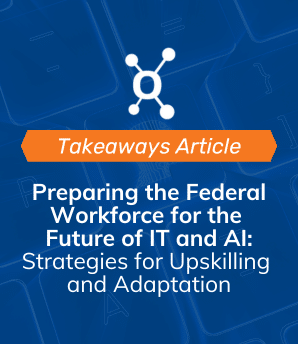The relationships between Tribal Nations, state, and federal governments in the United States are central to understanding our history, politics, and ongoing challenges. Tribal Nations have sovereignty, and their impact is far-reaching throughout the public and private sectors.
Watch the panel discussion here
Our panelists dove into this multifaceted issue, offering valuable insights into the historical origins, contemporary issues, and potential paths forward.
Here are the takeaways:
For everyone
Collaboration is key for a shared and equitable future.
Tribal Nations and all levels of the U.S. government must work together to achieve common goals. Broadband access, natural resource management, and social services are all examples of issues where these groups are joining forces. While the solutions may look different depending on the area of policy, access to quality data makes collaboration easier. Leadership Connect is proud to launch the pilot phase of our Tribal Data, which includes the governmental structure of 19 Tribal Nations. This new product will help to foster connection and collaboration between Tribal Nations, the private sector, and the U.S. state and federal governments.
For the newcomer
Tribal Nations are sovereign nations and operate uniquely from federal, state, and local governments. Take time to educate yourself on terminology, cultural norms, and their influence.
When working with Tribal Nations, it is important to understand their history and sovereignty. Each Tribe is different – culturally, structurally, and historically. The Leadership Connect panel had leaders from the Choctaw Nation and Kiowa Tribe, and they compared their experiences working on behalf of their Tribal Nations. From a federal government perspective, the United States “has charged itself with moral obligations of the highest responsibility and trust” toward Native American Tribes through the Federal Trust Responsibility [PDF link].
For the seasoned pro
Relationship-building across governments is key to success.
Once you recognize the importance of collaboration and take time to educate yourself, building strong relationships is the next step for a seasoned pro. Our panelists shared stories of how the inter-tribal and inter-governmental relationships they built have led to successful policy initiatives. Fatima Abbas, Director of Tribal and Native Affairs for the Department of Treasury, shared that through connecting directly with Tribal Nations, Tribes engaged in over 3,000 projects through the Economic Recovery Project. These included housing construction, youth mental services, and language preservation.
We can help you get started
Use Leadership Connect to leverage people you already know to tap into their relationships.
Our stakeholder map algorithmically displays who knows who.
Missed the discussion? View the panel here.







